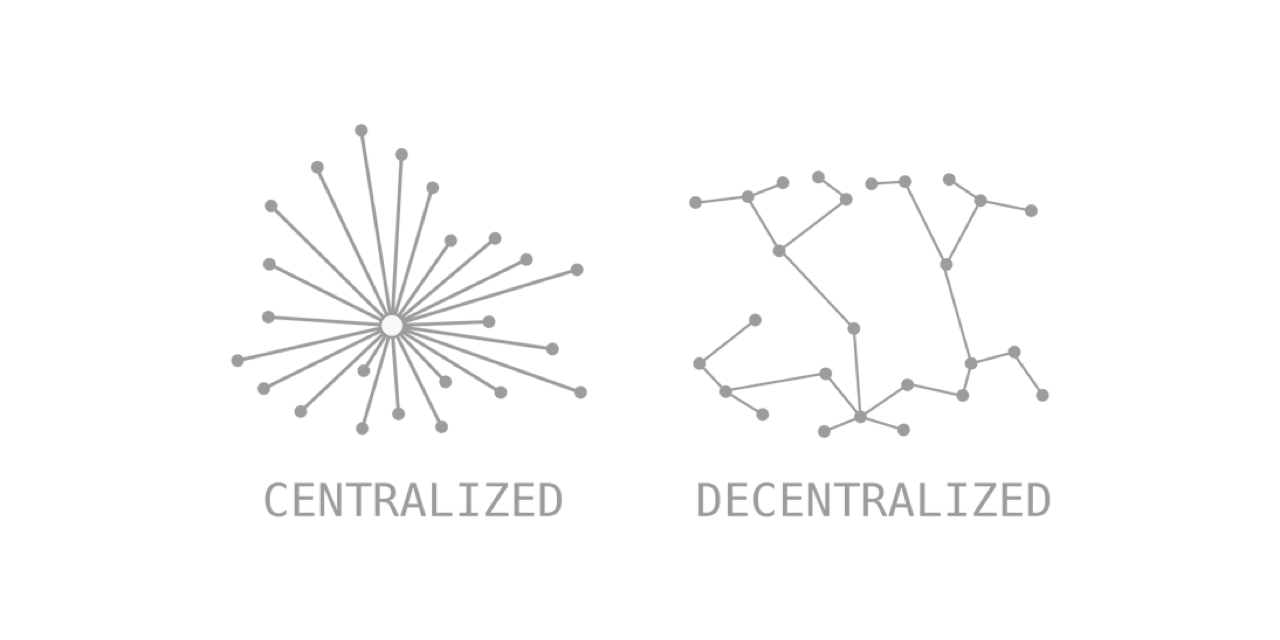Is decentralized travel the future? Decentralization could disrupt the travel industry as we know it. Learn how to leverage it to your advantage.

After talking about the evolution of the Internet from Web1 to Web2 and finally Web3 in our last article, today we want to dig a bit deeper and look at one of the fundamental characteristics of Web3 and its implications on travel: Decentralization.
The idea of decentralization is not new and by no means unique to the blockchain space. In politics, the term decentralization is always used when a decision is not made centrally by the government but by a state or a municipality. This is done in order to locate the political decision-making processes where the problems to be solved occur.
In business, decentralization means that similar tasks are transferred to several entities. In other words, the operating units of a large corporation are given more freedom to make decisions. This allows the respective company, for example, to remain closer to the market and, thus, to the customer.
Generally speaking, then, decentralization means that responsibilities are shared among several agencies rather than one central agency. Nothing new there, right?

In the crypto area, it is fairly similar.
One of the ideas at the heart of Bitcoin since its inception was not needing a central authority to oversee transactions. At the end of the Bitcoin White Paper, Satoshi Nakamoto, the famous inventor of the token, states, "We have proposed a system for electronic transactions without relying on trust." So how did he do it?
Simply put, the equivalent of trust in the decentralized blockchain world is created by two fundamental things: radical transparency and mathematics.
The idea is that if every participant of the network can see all transactions at any time and all these transactions make sense (if person A sends person B 2€, person B must also owe 2€ to person A) then there is no room for fraud - by definition so to speak.
And now, in somewhat more technical terms: transactions that run over the blockchain are encoded - with extremely complex math. To carry out these transactions, the Bitcoin blockchain requires so-called miners to perform the calculations and confirm the correctness of the transactions. To ensure that one miner alone does not confirm all transactions (because this would give that one miner A LOT of power, and we don't want that), many different computers around the world take part - and by many miners, we really mean many: In 2021, there were around 1,000,000 Bitcoin miners in the world — the epitome of decentralization.
The basic principle, therefore, is that no one has complete control over any part of the Blockchain infrastructure. This ensures trust in Bitcoin because the principle guarantees that manipulations of individual actors on the blockchain must fail.
Decentralization and travel can meet, and they meet well.
One of the most prominent reasons for this is that data is the be-all and end-all in the travel industry - luggage handling, bookings, and check-ins, to name a few. For all of this, we need data and not just a little bit.
However, with data comes error-proneness, vulnerability to fraud, and the risk of being hacked. All of these risks can be mitigated through decentralization. (And in addition to minimizing risk, decentralization brings a few advantages of its own into play 😉).
By using decentralization, possible through a peer-to-peer network such as the Camino Network, the web3 environment for the travel industry built by Chain4Travel, transactions can be executed in the future without a central authority in place. This means that the data source can be democratically managed through decentralization in the travel industry. Whoever participates in the network also determines the direction in which it develops. This offers companies in the industry the opportunity to be active owners of their data while leading to the obsolescence of central authorities.
Additionally to that, decentralization can lead to an unprecedented level of security in the travel industry like we have not seen before. The complexity of the network, the number of participants, and the logarithms behind it that are storing data and carrying out transactions make hacking and cheating the system basically impossible. When using decentralization, everyone shares a single source of truth - no more place for disputes based on different sources of data.
Another advantage of the technology can be found in the area of rapidity and efficiency. Through the aforementioned single source of truth and the implementation of the latest technology, the use of a decentralized network can reduce data output time. As some of you may have experienced, this is not always the case with the centralized systems that the tourism industry currently uses...
Decentralization and the democratization of the travel industry infrastructure will bring revolutionary changes, especially for microservices (such as providing a bottle of wine at the arrival of the customer) and smaller players in the field. Services that today can hardly be cost-efficient due to complex API connections and convoluted processes will become attractive by using the Camino infrastructure.
This is because the transactions that are carried out decentrally are equal to whichever product is being transferred - and that also means equally fast and equally inexpensive for every product. No matter whether we are talking about a superior suite for several thousand euros, a coffee, or a massage.
Furthermore, all validators (roughly speaking, the equivalent to Bitcoin miners) are treated equally in Chain4Travel's solution. Validators are players from the travel industry - airlines, OTAs, hotel groups, you name it, who validate the accuracy of transactions and decide in which direction the network will develop.
"Equally treated" in this context means that every validator has the same vote - no matter how many customers they serve per year or how much revenue they generate.
In this way, small players who participate in the new infrastructure and decentralize their business will be empowered and able to stand face-to-face with the established giants of the travel industry.
Sounds interesting? Find out how you can become a validator and leverage the power of decentralization here.
Decentralization can revolutionize the travel industry without requiring it to change its character: Enhanced security, peer-to-peer ownership of data and information, and cost savings can enhance businesses around the world.
Chain4Travel offers companies the chance to be at the cutting edge today and to help shape the travel industry of tomorrow. Do you want to be part of it?